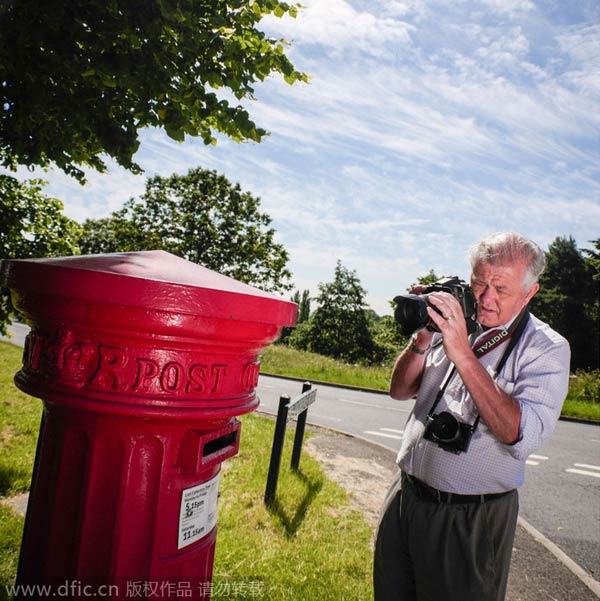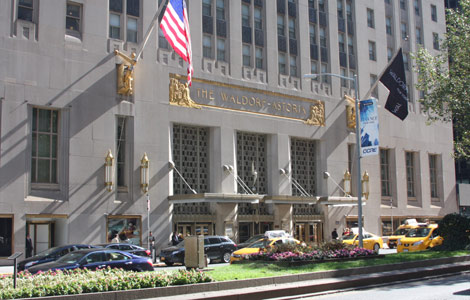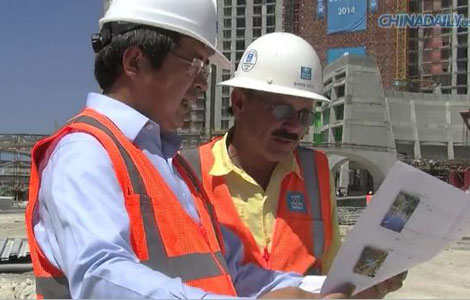Man who travels from pillar to post
Updated: 2014-10-09 09:41
(Xinhua)
|
||||||||
 |
|
Peter Willis, 67, from Worcester, whose mission is to photograph as many of Britain's post boxes as possible and has already snapped more than 2,500 post boxes. [Photo/IC] |
LONDON -- They are as famous and iconic as Britain's traditional red telephone boxes, and now a rare Royal Mail letterbox in Liverpool has won pride of place on the cover of a national calendar for 2015.
The calendar is the work of retired postal worker Peter Willis, a leading member of the 600-strong voluntary organisation, the Letter Box Interest Group.
The group has set about cataloguing and recording details of every one of the 150,000 letter boxes across Britain. The most popular is the street corner, cylinder-shaped "pillar box".
One of those pillar-boxes, known as a "Liverpool Special", is still in daily use after more than 150 years. It was one of a handful made to cater for large volumes of post generated in Liverpool during the days of Queen Victoria.
Described as a "national treasure" the brilliant red box, is topped with a crown and is the only one of its kind surviving in public use, taking pride of place among the cobbled streets of Liverpool's historic Albert Dock area.
Willis has travelled the length and breadth of the British Isles photographing letter boxes of all shapes and sizes, and chose the Liverpool box as his favorite to grace the cover of his calendar.
Since his retirement, Willis has photographed more than 2,500 post boxes, earning the unfortunate and unwelcome title as "the dullest man in England".
His fellow members of the Letter Box Interest Group say the description is as unfair as it is undeserved.
LBIG spokesman Robert Cole said: "Letter boxes in every town, city and village are cherished by people. What we as a group are doing is recording every detail of every box. It is an important heritage job, as many of the boxes are of immense historic value to our country."
"You only have to look at the fuss generated by the public when a post box is removed to appreciate their community value. Some may regard people like Peter Willis as 'anoraks', or dull, but the work we do is far from dull. It is fascinating, taking in local history, street-scapes and the life of our country."
This Saturday about 100 members of the group will travel to Birmingham for the annual general meeting, when the talk will focus, obviously, on post boxes.
The main aim of the group is to encourage research, preservation, restoration and awareness of letter boxes and the definitive description and documentation of their types and locations.
As spokesman Cole added: "We have the enviable position of being the only organisation in existence to have a comprehensive system for defining and numbering British letter boxes. For this reason we are recognised as the definitive authority on the subject, acknowledged by both the Royal Mail and the British Postal Museum & Archive."
"Our members have many interests and approach letter boxes from lots of different directions; philately, postal history, social history, street furniture, casting & manufacturing heritage, but all have been captured by the romance of the iconic letter box,
so central for so long to the communication network of these islands of Britain," said Cole.
The group set itself a task in 2005 of recording details of all boxes, and so far has completed the task for more than 100,000 of the boxes.
The British novelist Anthony Trollope is responsible for the network of post boxes in the UK. Before he became a famous writer he worked for the British Postal Service as a surveyor, and in 1852 introduced the first post boxes in the Channel Islands. Within a few years, post boxes were to be seen in every town and city across the British Isles.
As Peter Willis explained: "How can my interest in post boxes be described as dull, when each one is different in some way. They have different ciphers, representing the serving monarch at the time the boxes were made and fitted. They are such an important part of our heritage and street scenes."
Despite the arrival of email and social media, and rivals to the State-run Royal Mail, the British hold dear to their hearts the post boxes at the corner of their streets.

 Silent HK majority urged to support government
Silent HK majority urged to support government
 Lunar eclipse in Asia and the Americas
Lunar eclipse in Asia and the Americas
 Hot air balloon challenge in Wuhan
Hot air balloon challenge in Wuhan
 Cultural bridge key for China, US
Cultural bridge key for China, US
 Romance at the West Lake
Romance at the West Lake
 Traffic embraces busiest day for holiday week
Traffic embraces busiest day for holiday week
 Chinese tourists flock to US for Golden Week
Chinese tourists flock to US for Golden Week
 Chinese insurer buys NYC's Waldorf Astoria Hotel
Chinese insurer buys NYC's Waldorf Astoria Hotel
Most Viewed
Editor's Picks

|

|

|

|

|

|
Today's Top News
US hospital to offer resources for new facility in Guangdong
China's role grows in Gates Foundation
US Ebola patient dies
Hopes for US, China trade high
China's 'Nightingale' races for Oscar
Holiday spending habits change
Xinjiang Corps to step up fight against evil forces
US offers to help tap Chinese market
US Weekly

|

|







